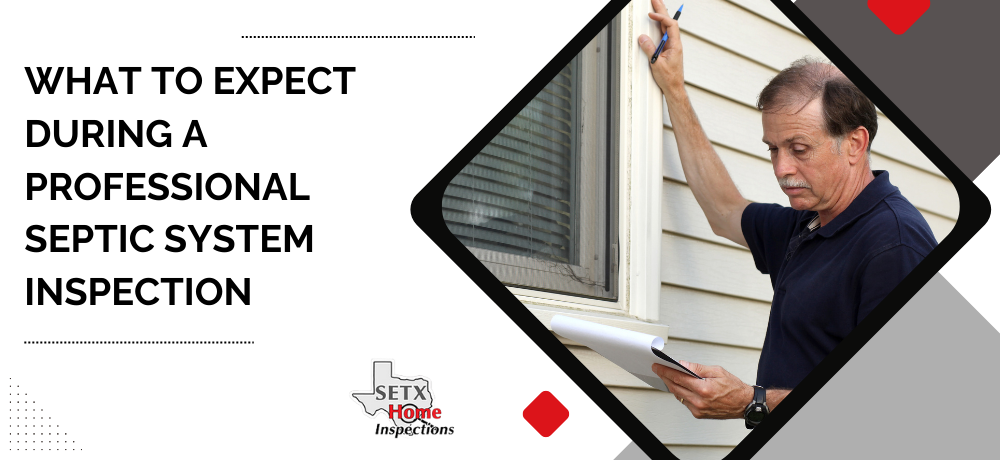What to Expect During a Professional Septic System Inspection

If you own a home with a septic system or are in the process of buying one, it's crucial to understand the importance of septic system inspections. A septic system inspection is a comprehensive evaluation of your system's condition and functionality. In this blog post, we will walk you through what to expect during a professional septic system inspection.
The Significance of Septic System Inspections
Ensuring Proper Functionality
1. Septic System Health: A septic system is responsible for treating and disposing of wastewater from your home. Regular inspections ensure that it's functioning correctly, preventing potential issues like backups, overflows, or contamination of the surrounding soil and groundwater.
2. Compliance with Regulations: In many areas, septic systems must comply with local regulations and health department guidelines. An inspection helps verify that your system meets these requirements.
Preventing Costly Repairs
1. Early Detection of Issues: Regular inspections can catch problems early, such as leaks, clogs, or damaged components. Addressing these issues promptly can prevent more extensive and expensive repairs down the line.
2. Maximizing Lifespan: A well-maintained septic system can last for decades. Inspections and proper maintenance contribute to extending the lifespan of your system, saving you money in the long run.
What Happens During a Septic System Inspection
Pre-Inspection Preparation
1. Access Points: The inspector will need access to various components of your septic system, including the tank, distribution box, and drainfield. Ensure these areas are easily accessible before the inspection.
2. Pumping (If Necessary): In some cases, the inspector may recommend pumping the septic tank before the inspection to provide a clear view of its condition.
Comprehensive Examination
1. Tank Inspection: The septic tank is the first component examined. The inspector will assess its structural integrity, check for cracks or leaks, and measure the sludge and scum levels.
2. Distribution Box and Pipes: The distribution box and pipes leading to the drain field are inspected for clogs, damage, or any signs of wear and tear.
3. Drainfield Assessment: The drain field is a critical component where wastewater is treated and released into the soil. The inspector will evaluate its condition, looking for signs of saturation, pooling water, or clogging.
Functional Testing
1. Water Flow Test
To check the system's functionality, the inspector may conduct a water flow test. This involves running water in the home to observe how it flows into the septic system and whether it drains properly.
2. Dye Test
In some cases, a dye test may be conducted. Non-toxic dye is flushed down drains to see if it emerges in the drain field. This test helps identify leaks or septic system failures.
Inspection Report
After completing the inspection, the inspector will provide you with a detailed report. This report will include findings, recommendations, and any necessary repairs or maintenance. It's essential to review this report carefully and address any issues promptly.
Frequency of Septic System Inspections
Regular Maintenance
1. Frequency
It's recommended to have your septic system inspected every 1 to 3 years, depending on factors like system size, household size, and local regulations.
2. Pumping Schedule
Septic tanks should be pumped every 3 to 5 years to remove accumulated solids and maintain proper system function.
A professional septic system inspection is a critical part of responsible homeownership. It ensures that your septic system is functioning correctly, helps prevent costly repairs, and extends the lifespan of your system. If you're in the Beaumont, TX, area and need a licensed professional for septic inspection or other property inspections, consider reaching out to SETX Home Inspections. Our commitment to quality and safety makes them a trusted choice for all your inspection needs.
Get in touch with us today
To learn more about what we do, please click here. To contact us, please click here or call us at (409) 234-5688.